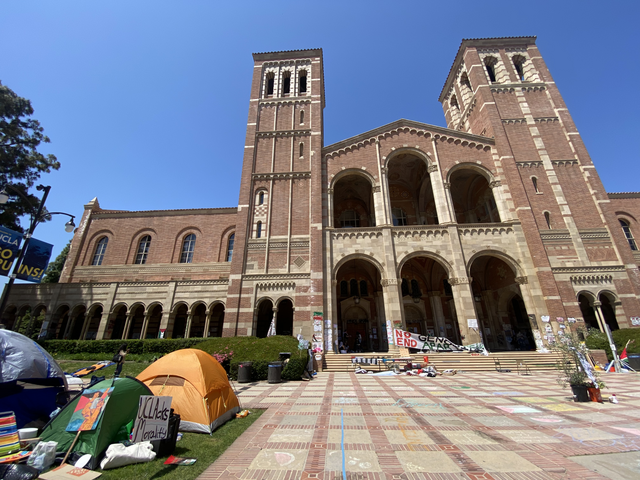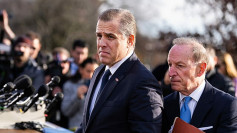In the early hours of Thursday morning, law enforcement officers began dismantling a pro-Palestinian encampment at the University of California, Los Angeles (UCLA), following days of tension and violent confrontations between demonstrators and counterprotesters. The police action came after hundreds of protesters defied orders to leave the encampment, which had been declared an unlawful assembly.
Officers from multiple agencies, including the Los Angeles Police Department and California Highway Patrol, were deployed to the scene to remove the encampment's barricades and detain protesters who refused to disperse. Video footage showed several demonstrators being walked out of the encampment with their wrists in zip ties, as officers methodically tore down the makeshift barriers constructed from plywood, pallets, metal fences, and trash dumpsters.
The police intervention at UCLA is the latest in a series of clashes on college campuses nationwide, where tent encampments of protesters calling on universities to stop doing business with Israel or companies they say support the war in Gaza have spread in an unprecedented student movement. The ensuing police crackdowns have drawn comparisons to actions taken decades ago against the much larger protest movement opposing the Vietnam War.
The tense standoff at UCLA came just one night after violence instigated by counterprotesters erupted in the same location. On Tuesday night, a group of about 100 people wearing masks and dark clothing attempted to breach the encampment, resulting in several bloodied participants on both sides. The tepid response by UCLA administration and campus police drew sharp criticism from political leaders, Muslim students, and advocacy groups.
California Governor Gavin Newsom denounced the delays in the university's response, prompting UCLA Chancellor Gene Block to promise a review of the night's events. "However one feels about the encampment, this attack on our students, faculty and community members was utterly unacceptable," Block said in a statement. "It has shaken our campus to its core."
The head of the University of California system, Michael Drake, also ordered an "independent review of the university's planning, its actions and the response by law enforcement." Rebecca Husaini, chief of staff for the Muslim Public Affairs Council, emphasized the need for the community to feel that the police are protecting them, not enabling others to harm them.
Several students who spoke during a news conference on Wednesday disputed the university's account of the number of people injured in the previous night's attack, claiming that the actual number of those hospitalized was higher than the 15 reported by the administration. They also stressed that many in the pro-Palestinian encampment remained peaceful and did not engage with counterprotesters, relying on each other for support as they were attacked.
The nationwide campus demonstrations began at Columbia University on April 17 in protest of Israel's offensive in Gaza, which followed Hamas launching a deadly attack on southern Israel on Oct. 7. The conflict has claimed the lives of more than 34,000 Palestinians in the Gaza Strip, according to the Health Ministry there, while militants killed about 1,200 people, mostly civilians, and took roughly 250 hostages in Israel.
The protests have sparked a debate about the line between legitimate criticism of Israel and antisemitism, with Israel and its supporters branding the university protests as antisemitic, while critics argue that such allegations are used to silence opposition. Although some protesters have been caught on camera making antisemitic remarks or violent threats, organizers of the protests, some of whom are Jewish, maintain that it is a peaceful movement aimed at defending Palestinian rights and protesting the war.






